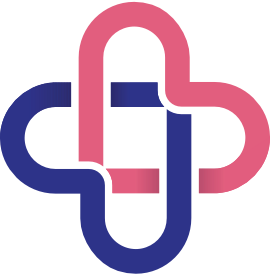Principaux points à retenir
Qu'est-ce qu'Ozempic ?

Ozempic s'est avéré si efficace pour aider à la gestion du poids que son fabricant n'a pas été en mesure de répondre à la demande et les pharmacies et les assureurs ont encouragé son utilisation à se limiter uniquement au traitement du diabète.
Il s'agit d'un médicament sur ordonnance classé comme agoniste du récepteur du peptide-1 (GLP-1) semblable au glucagon. Il agit en stimulant la libération d'insuline et en réduisant la production de glucagon, deux facteurs qui contribuent à abaisser le taux de sucre dans le sang chez les personnes atteintes de diabète de type 2. Ozempic est habituellement administré une fois par semaine par injection sous-cutanée.
En plus de son rôle dans la gestion de la glycémie, Ozempic s'est avéré avoir d'autres effets bénéfiques sur le corps, notamment en ce qui concerne la perte de poids. En effet, les agonistes des récepteurs du GLP-1 comme Ozempic peuvent supprimer l'appétit et augmenter la sensation de satiété, ce qui entraîne une réduction de l'apport calorique.
De plus, il a été démontré qu'Ozempic a un effet positif sur la santé cardiovasculaire. Des essais cliniques ont démontré qu'elle peut réduire le risque d'événements cardiovasculaires indésirables majeurs, comme les crises cardiaques et les accidents vasculaires cérébraux. Cela fait d'Ozempic une option de traitement précieuse pour les personnes atteintes de diabète ou d'obésité et de problèmes cardiovasculaires.
En ce qui concerne l'administration d'Ozempic, il est important de noter qu'il est généralement administré sous forme d'injection une fois par semaine. Ce facteur de commodité est très apprécié par les personnes atteintes de diabète qui ont peut-être déjà un régime médicamenteux complexe. L'injection est relativement simple et peut être auto-administrée à domicile, en suivant les instructions appropriées d'un professionnel de la santé.
Il convient de mentionner que, comme tout médicament, Ozempic peut avoir des effets secondaires potentiels. Les effets secondaires initiaux courants comprennent des nausées, de la diarrhée et des vomissements. Ces symptômes sont généralement légers et ont tendance à s'améliorer et à disparaître avec le temps à mesure que le corps s'adapte au médicament. Cependant, il est important de consulter un professionnel de la santé si ces effets secondaires persistent ou s'aggravent.
Pourquoi quelqu'un pourrait-il arrêter de prendre Ozempic ?

Il peut y avoir diverses raisons pour lesquelles quelqu'un pourrait envisager d'interromper Ozempic. Il s'agit notamment :
Manque d'efficacité : Malgré l'efficacité du médicament pour de nombreuses personnes, il se peut qu'il ne produise pas le contrôle glycémique souhaité ou la perte de poids souhaitée dans certains cas. Il y a des centaines de gènes et des dizaines d'hormones qui interviennent dans la régulation du poids. Jusqu'à ce que nous ayons des tests pour aider à identifier les gènes et les hormones d'une personne et, à leur tour, quels traitements pourraient lui convenir le mieux, tout ce que nous pouvons faire est une approche de type essais et erreurs. Cela signifie que pour certains, ozempic est susceptible d'avoir un impact extrêmement important, tandis que pour d'autres, il peut ne pas faire beaucoup de différence. Cela peut inciter les personnes à explorer d'autres options de traitement sous la direction de leur fournisseur de soins de santé.
Effets secondaires indésirables : Comme tout médicament, Ozempic peut causer des effets secondaires. Bien que tout le monde ne les éprouve pas, si les effets secondaires deviennent dérangeants ou intolérables, ils peuvent inciter les personnes à discuter d'autres options de traitement avec leur fournisseur de soins de santé.
Coût : Ozempic peut ne pas être couvert par certains régimes d'assurance, ou les dépenses personnelles peuvent devenir lourdes. Cela peut amener les personnes à rechercher des médicaments de remplacement ou des traitements plus abordables.
Grossesse ou projet de concevoir : Il est recommandé d'interrompre le traitement par ozempic avant la conception. Si vous prévoyez concevoir, parlez à votre professionnel de la santé pour savoir combien de mois avant le début vous devriez arrêter le traitement et, bien sûr, si vous découvrez que vous êtes enceinte et que vous prenez toujours le médicament, vous devriez arrêter immédiatement.
Symptômes de sevrage : l'objectif principal
Lorsque vous arrêtez d'utiliser Ozempic ou tout autre médicament anti-obésité, il est important de savoir qu'au cours des semaines qui suivent son arrêt, la faim, les fringales et l'appétit d'une personne reviennent lentement à ceux qu'elle ressentait avant de commencer le traitement. À son tour, avec le temps, cela amènera de nombreuses personnes à retrouver leur poids perdu au fil du temps. Comme ces médicaments ont tendance à amplifier les files d'attente de plénitude du corps — des files d'attente qui sont elles-mêmes influencées par les habitudes alimentaires d'une personne — le fait de travailler avec un diététiste agréé peut aider à réduire la faim, les fringales et les changements de plénitude après l'arrêt Ozempic. Votre diététiste agréé travaillera probablement avec vous pour vous aider à déterminer la fréquence des repas et des collations qui vous aide le plus à atteindre la plénitude et à explorer votre distribution de protéines, de lipides et de glucides pour vous aider à faire face à ces problèmes.
Prévention et transition vers Ozempic en toute sécurité

Plutôt que d'arrêter soudainement le médicament, il peut être judicieux d'envisager une réduction graduelle afin d'avoir un cadre de référence quant à l'impact que les différentes doses peuvent avoir sur la faim, les fringales et la satiété d'une personne ainsi que sur les effets secondaires potentiels. En réduisant le médicament lentement, non seulement vous serez en mesure de prêter attention à l'impact des différentes doses du médicament sur vous, mais vous constaterez peut-être également que des doses plus faibles vous conduisent à moins d'effets secondaires tout en maintenant des avantages pour vos niveaux de faim, de soif et de satiété. Cela serait particulièrement vrai si la réduction s'accompagne d'une collaboration avec une diététiste qui comprend les habitudes alimentaires et les stratégies comportementales qui améliorent la plénitude.




.webp)